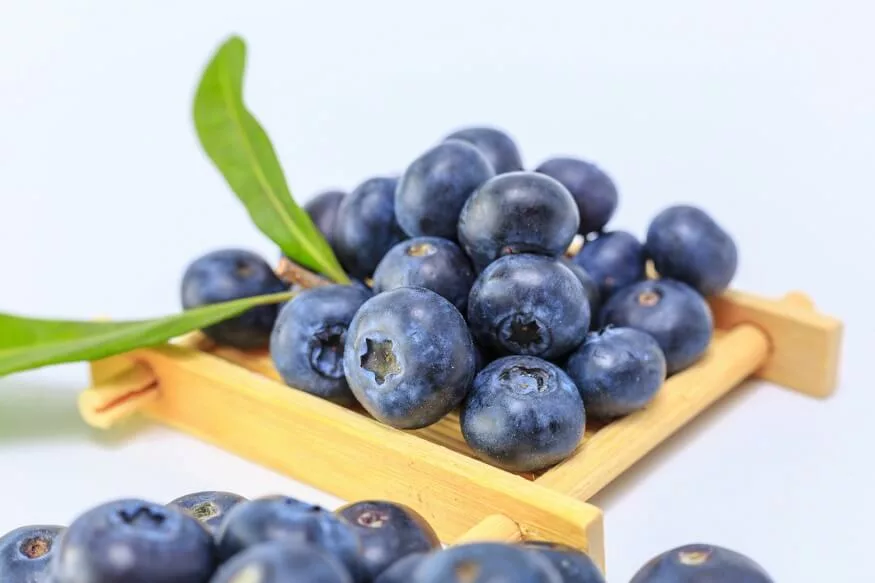Grapes are a delicious and healthy addition to a child’s diet, supporting their growth and overall health. This blog explores the nutritional value of grapes for children.
History of grapes
Grapes, scientifically known as Vitis vinifera, have been cultivated for thousands of years, dating back to around 6000 B.C. in places like modern-day Georgia.
The ancient Egyptians were also familiar with grape cultivation also known as viticulture. Grapes held significance in ancient Egyptian culture, as paintings dating back to 2400 B.C. show vineyards and grape harvesting. Wine jars dating to the Early Dynastic Period (3150–2686 BC) were found in tombs, indicating the importance of wine for rituals.
In ancient times, grapes were also found in Macedon and Thasos tombs from the 4th century B.C. Greeks used wine not just for drinking but also in religious ceremonies. During the Roman Empire, significant advancements were made in viticulture, leading to various grape types and wines still enjoyed today.
During the Middle Ages, the Catholic Church cultivated vineyards in Europe for wine production. Early explorers later established grape cultivation in the Americas.
In the 19th century, modern agriculture practices led to the global cultivation of grapes.
Also read : Fun Fruit-Based Recipes for Kids to Try
Types of grapes
There are various types of grapes today. Pinot Noir grapes, primarily grown in Burgundy, France, are known for their light colour and complex flavours. The Chardonnay grape, originally from France’s Burgundy area, is now cultivated globally due to its easy adaptation to different climates. Cabernet Sauvignon from France and Riesling grapes from Germany are some of the other varieties.
Regarding non-wine grapes, the Flame Seedless counts among popular table grapes, favoured for its sweet taste and firm texture. Alternatively, the Thompson Seedless is highly demanded, primarily used for drying into raisins.
Nutritional Profile of Grapes
Grapes, both red and white variants, are full of essential nutrients. Grapes taste amazing and are super healthy because of their strong nutritional profile:
Grapes are high in vitamins C and K. A single cup (151 grams) of grapes contains
- 3% of the recommended daily intake (RDI) of vitamin K
- 3% of the RDI for vitamin C.
Vitamin K helps:
- Blood clot
- Keep bones strong
Vitamin C:
- Makes the immune system strong
- Helps the body absorb iron.
Also read : The Importance of Eating a Variety of Fruits for Kids Health
Plant compounds
- Being high in antioxidants, grapes contain resveratrol, flavonoids, and quercetin – compounds shown to
- Protect heart health.
- Support blood vessel function.
- Reduce inflammation.
- Help you live longer.
- Avoid cancer.
- Keep your heart strong.
Fibre
A cup of grapes contains 1.4 grams of fibre or about 5% of the RDI. Fibre helps digestion, controls weight, and regulates blood sugar.
Low glycaemic index
Grapes do not cause a sharp rise in blood sugar levels. This is helpful for people trying to regulate their blood sugar.
Help in hydration
Grapes are composed of more than 80% water. Hence, they serve as a perfect snack for dry conditions and warm weather.
Also read : Growth Milestones and Nutritional Needs: Tracking optimal physical and mental growth in kids
Low calories
A cup of grapes only contains around 104 calories which is lower compared to other common fruits. Their high water and fibre content can keep you feeling full which aids weight loss.
Benefits of Grapes for Children
- High in Antioxidants
- Grapes have antioxidants called flavonoids and polyphenols. They help:
- Prevent damage to the cells.
- Preventing
- Guard against heart problems.
- Boost the immune system.
- Promotes Heart Health
The fibre, potassium, and flavonoids in grapes:
- Support heart health.
- Maintain healthy blood pressure levels.
- Aids Digestive Health
The fibre content in grapes:
- Improves bowel movement.
- Aids in digestion.
- Prevents constipation, a common problem in children.
- Boosts Immunity
The high vitamin C content of grapes
- Boosts immunity.
- Keeps away diseases and infections.
- Supports Cognitive Health
The antioxidants in grapes:
- Protects the brain.
- Supports cognitive development.
- Improves memory and attention in children.
Also read : Vitamin and Mineral Needs in Children: Spotlight on Vitamin D, Iron, and Calcium
Making grapes a habit
Whether as a snack or used in creative recipes, below are some ways in which you can include grapes in your child’s daily diet for their well-being.
- Serve grapes as a snack: Children naturally gravitate towards sugary snacks, which can be detrimental to their health. Grapes, being both sweet and nutritious, can be the perfect substitute. They can be served whole, halved, or even frozen for a unique summertime treat.
- Include grapes in meals: This will ensure their routine intake. A popular way to do so is in salads. The sweet taste of grapes contrasts brilliantly with vegetables, making the salad more appealing to children. Additionally, grapes can serve as a nutritious garnish in cereals or yoghurt, encouraging children to relate them to regular meals.
- Involve children in the grape-picking process: This activity can pique their interest. If a vineyard is accessible, planning a family outing or a school trip can ignite a child’s curiosity. The involvement in the process of getting the grapes from the vine to the table can encourage them to sample this fruit and steadily foster the grape-eating habit.
- Educate children about the benefits of grapes: Educating children about the nutritional benefits of grapes can incentivize them to incorporate grapes into their diet.
At EuroSchool we encourage children to eat healthy by promoting healthy dietary behaviour which, in turn, can build a healthier future generation.
The information provided on this website is not a substitute for professional medical advice. EuroSchool encourages you to consult with a qualified healthcare professional for any health concerns you may have. The information on this website is not intended to diagnose, treat, cure, or prevent any disease.










